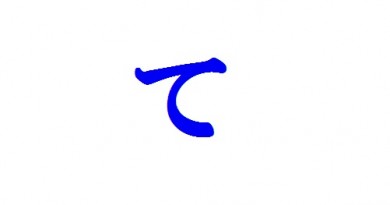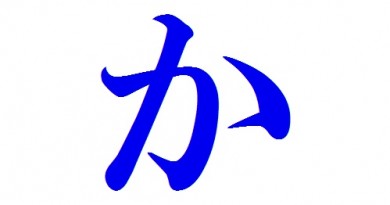Contents
Learn minna no nihongo lesson 19
3. Grammar
た-form of verb
We conjugate verbs in た-form the same as て-form, just change [ て で] in て-form into [た だ]
Example:
Group 1:
かきます -> かいた
およぎます -> およいだ
のみます -> のんだ
あそびます -> あそんだ
まちます -> まった
とります -> とった
あいます -> あった
はなします -> はなした
Group 2:
たべます -> たべた
Group 3:
します -> した
きます -> きた
Vたことがあります。
Meaning : ever do something, have done something before.
Usage: use to talk about an experience in the past. Describe things that don’t happen often.
We don’t use た-form with the verb [あります].
To answer the questions about something that we have ever or have never done something in the past, we use: “いいえ、(いちど)ありません。” (No, not once.) or はい。あります/ はい。times + あります
Example :
あなたはにほんへいったことがありますか。
Anata wa nihon e ittskoto ga arimasuka?
Have you ever been to Japan?
いいえ、(いちど)ありません。
Iie, (ichido) arimasen.
No, not once.
おさけをのんだことがありますか。
Osake o nonda koto ga arimasuka?
Have you ever drunk sake?
はい。あります/ はい、2回あります。
Hai. Arimasu/ Hai, Nikai arimasu.
Yes, I have / Yes, I have drunk it twice.
Vたり、Vたり します。
Meaning : do such things like…
Usage :
List actions that don’t happen chronologically. The tense of the sentence is shown at the end of that sentence.
Example :
にちようびそうじしたり、せんたくしたりします。
Nichiyoubi soujishitari, sentakushitarishimasu.
On sunday, I clean the house, wash the clothes.
きのう こうえんをさんぽしたり、レストランでしょくじしたりしました。
Kinou kouen o sanposhitari, resutoran de shokujishitarishimashita.
Yesterday, took a walk in the park and had a meal at a restaurant.
まいばんおんがくをきいたり、かんじをかいたりします。
Maiban ongaku o kitari, kanji o kaitarishimasu.
I listen to music and write Kanji every night.
Adj-い remove い+ くなります。/ Adj-な remove な+ になります。/ Noun + になります。
Meaning : become ~
Example:
Kodomo no toki isha ni naritakatta desu. Ima isha ni narimashita.
I wanted to be a doctor when I was a child. I became a doctor now.
Te o aratte kara, te ga kirei ni narimasu.
Samuku narimasu.
It becomes cold.
Genki ni narimasu
I get strong.
25 sai ni narimasu.
I will turn 25.
そうですね。
Usage :
Use to show your approval to the parter in conversation.
You can also express the same meaning by saying [そうですか] while lowering your voice at the end of the sentence.
Example :
さむくなりましたね。
Samuku narimashitane.
It becomes cold, right.
。。。そうですね!
Soudesune!
Oh yeah.
4. Kaiwa
ダイエットはあしたからします
Daietto wa ashita kara shimasu
皆:乾杯。
Minna: Kanpai.
松本良子:マリアさん、あまり食べませんね。
Matsumoto Ryouko: Maria san, amari tabemasen ne.
マリア:ええ。実はきのうからダイエットをしています。
Maria: Ee. Jitsuwa kinou kara daietto o shite imasu.
松本良子:そうですか。わたしも何回もダイエットをしたことがあります。
Matsumoto Ryouko: Soudesu ka. Watashi mo nankai mo daietto o shita koto ga arimasu.
マリア:どんなダイエットですか。
Maria: Donna daiettodesu ka.
松本良子:毎日りんごだけ食べたり、水をたくさんのんだりしました。
Matsumoto Ryouko: Mainichi ringo dake tabe tari, mizu o takusan non dari shimashita.
松本良子:しかし、無理なダイエットは体によくないですよ。
Matsumoto Ryouko: Shikashi, murina daietto wa karada ni yokunaidesu yo.
マリア:そうですね。
Maria: Soudesune.
松本良子:マリアさん、このケーキ、おいしいですよ。
Matsumoto Ryouko: Maria san, kono keiki, oishidesuyo.
マリア:そうですか。・・・・・。ダイエットはまたあしたからします。
Maria: Sōdesu ka.. Daietto wa mata ashita kara shimasu.
Translation:
I will start my diet tomorrow
Everyone: Cheers.
Matsumoto Ryouko: Maria, you don’t eat much.
Maria: Yeah. Actually I have been on a diet since yesterday.
Matsumoto Ryouko: Is that so. I have also been on a diet many times.
Maria: What is your diet like?
Matsumoto Ryouko: I ate only apples and drank a lot of water everyday.
Matsumoto Ryouko: However, an impossible diet is not good for your health.
Maria: I agree.
Matsumoto Ryouko: Maria, this cake is delicious.
Maria: Is that so….. I will start my diet tomorrow.



Appreciate your work. Thank you so much. I suggest update the questions for the latest edition of the minnano nihongo